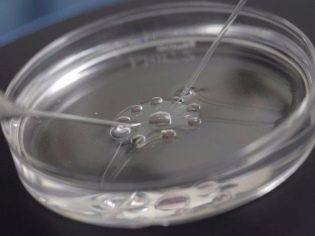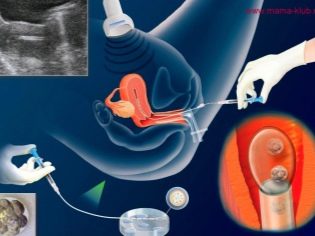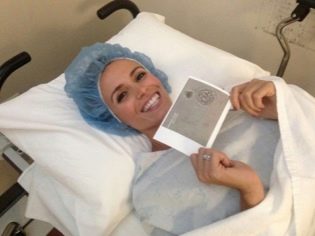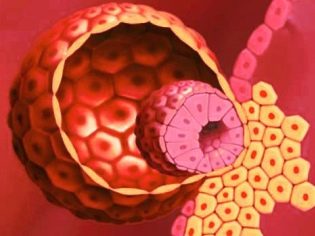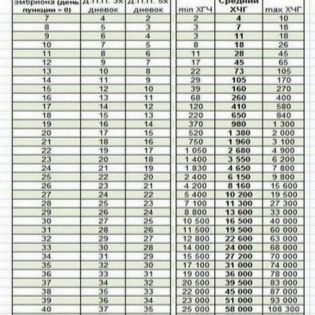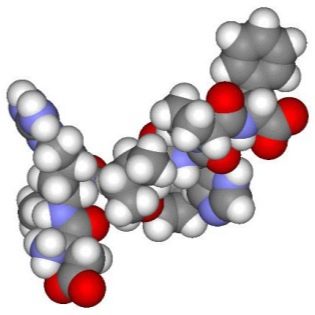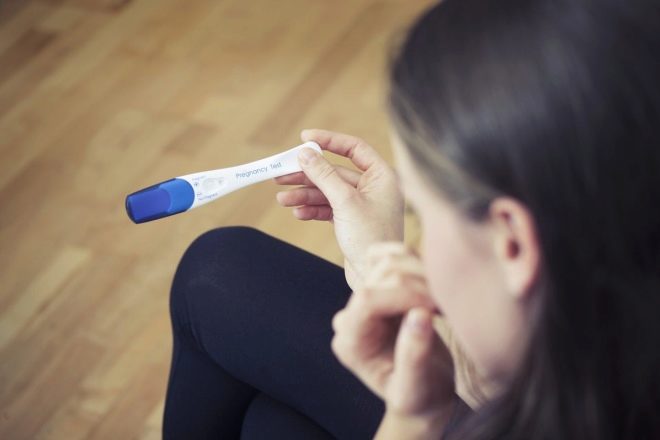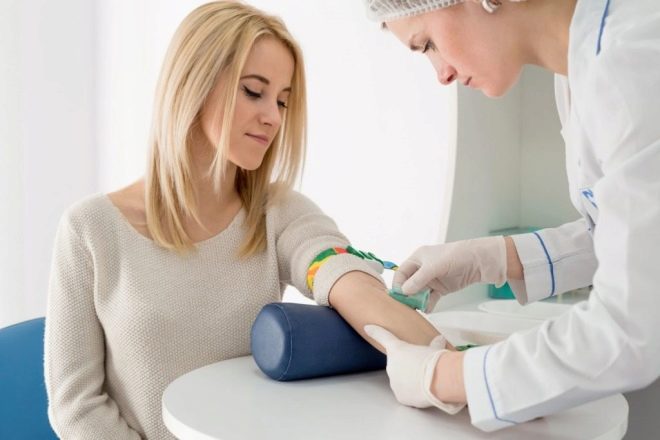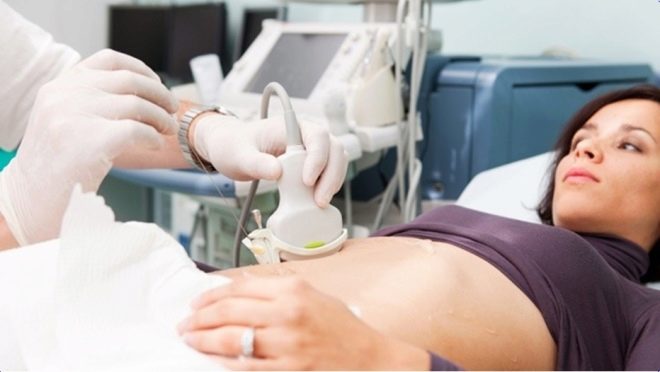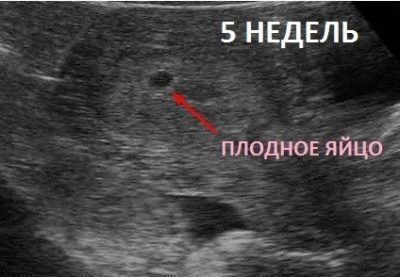What is DPP during pregnancy and why is this term used for IVF?
Women planning pregnancy are forced to operate with a variety of complex medical terms, which they shorten for ease of understanding.
One of these abbreviations is DPP. What this abbreviation means, why it is used in IVF and how important it is, we will explain in this article.
What it is?
In the three letters of the DPP is hidden a large concept that allows a woman and her doctor to count off after a significant event in the IVF cycle.
DPP is the day after embryo transfer, or the day after replanting. When pregnancy occurs in a natural way, this term is not used. Women are counting from the middle of the menstrual cycle, when ovulation has presumably occurred, until the day of truth, when it will be possible to find out the answer to the question of whether conception took place in DPO (days after ovulation).
In the treatment cycle of in vitro fertilization, ovulation does not occur, doctors do not allow the release of stimulated mature eggs and puncture earlier, taking oocytes for fertilization in the laboratory.
A few days later (usually after 3-5 days), a woman is invited to the clinic to transfer the embryo (or several embryos) into her uterus. The procedure is simple and painless, it does not require the introduction of anesthesia, as the puncture of the ovaries for the collection of eggs. Through a thin catheter, embryos in the nutrient solution are introduced into the uterine cavity. After a short lying position, the woman can leave the clinic. From this moment begins her personal countdown DPP.
The day of planting is considered zero. A day later, we can talk about one DPP, after three days - about three DPP, etc.
The question may arise, why do we need to count the days after embryo transfer? The answer is quite simple - during the entire period after embryo grafting and until the moment when it will be possible to diagnose a pregnancy or its absence, certain changes will take place in the woman’s body.
In addition, it is necessary to clearly know the timing of the subsequent examination, and they, after the replanting of embryos, are calculated directly in the BPP — days after transfer.
Daily changes
The first DPP woman usually spends in bed, in any case, doctors recommend that all women in the IVF cycle after embryo transfer to withstand at least a day of bed rest at home. No unusual feelings on this day should not wait, as, indeed, at 2, 3 and 4 DPP. Starting with 4 DPP, theoretically implantation can occur.
Implantation occurs in two stages: first, the embryo “sticks” to the wall of the uterus, and then begins to secrete special enzymes that will dissolve the endometrial cells. Fetal egg will be able to "dig" in the loose endometrium and begin to receive blood and nutrients from the mother's body.
If both stages have passed safely, then they talk about the pregnancy that took place, but there is absolutely no way to diagnose it 4 days after the transfer.
In some women, the implantation is accompanied by special sensations - nausea, headache, slightly pulling the lower abdomen, bloody discharge from the genitals - a so-called implant bleeding that does not pose a danger to the mother and fetus. It is just that the blood that came out at the moment of injury of the epithelial cells to the fetal egg must go somewhere, and there is only one way out through the reproductive tract.
Symptoms are quite conditional, because exactly the same are observed in women and in an unsuccessfully stimulated protocol. If a woman takes and takes hormonal drugs, malaise becomes commonplace. So it all depends on individual sensitivity.
When blastocyst is transplanted - abbrion, which have reached the age of 5 days, implantation usually occurs earlier than during the transfer of three-day-germ embryos.
With a successful cryoprotocol, the process of attachment of the ovum may also be delayed.
No doctor can establish the exact day of implantation, no modern ultra-precise equipment will help to answer the question whether this significant event took place for which the patient and her doctors had to work so long and hard.
On average, the terms of implantation after IVF have quite wide boundaries - from 4-5 DPP to 7-8 DPP. From the moment of embryo attachment in the woman’s body, a special hormone, hCG, is produced. It will accumulate gradually.
A woman may feel small changes in her state of health due to an increase in the level of this hormone within 4-6 days after implantation. Usually, it is also quite difficult to recognize them, because the symptoms are similar to the usual premenstrual syndrome and again coincide with side effects from the use of hormonal means of support in the IVF cycle.
This is a small engorgement of the mammary glands, increased drowsiness, lethargy, fatigue, headaches, nausea, feeling of bloating.
At 5-6 DPP, it is usually recommended to come to the clinic and donate blood for certain hormones, as well as determine D-Dimer, in order to rule out the development of thrombosis and hormonal insufficiency of the second phase of the treatment cycle. The decoding of the analysis is made by the doctor, but he would not give an answer these days about whether it was possible to get pregnant.
At 9.10, 11, and 12 DPP, a woman, if the pregnancy has taken place, can theoretically begin to feel some of the first signs. But they are subjective and it is not recommended to take them into account. Test strips, even the most modern, electronic ones will not help either.
Against the background of strong hormonal support, tests after IVF often give false positive results (when there is no pregnancy, and two stripes adorn the strip).
When can I find out about pregnancy?
13 DPP - the day of preparation for the first informative survey. A woman needs to limit herself in fatty foods, sweets, dine for the last time at 18.00.
On the 14th day after embryo transfer, the first pregnancy blood test is done. To this day, the level of the chorionic hormone reaches the mark, which is fixed by laboratory markers, and therefore already at 14 DPP a woman can find out if she is pregnant. The probability of error is extremely small - no higher than 1-2%.
If the test is negative, from 14-15 DPP cancel hormonal support, the woman stops taking progesterone, estradiol, if such were present in the support, and about 18-19 DPP menstruation comes. After two or three months of rest and recovery, the patient may make the next attempt to become pregnant with the help of fertility specialists.
If the analysis shows a positive result, a woman can be congratulated. But pregnant in the full sense of the word is still too early to consider her. On the 21st day after embryo transfer, the first ultrasound is prescribed. This is a truly exciting and disturbing day when a woman who has dreamed of a child for years will be able to see a fertilized egg, and maybe not one.
The first ultrasound is done in the same clinic where all the other IVF steps were performed. Confirm the presence of uterine pregnancy, establish how many embryos are stuck. At this period, only the fertilized egg is visible, the size of which will indicate how fully the pregnancy is developing.
Only see the embryo by the end. second month of pregnancybut for now you have to be content with little. At 28 DPP (that is, one week after the first ultrasound scan), a control ultrasound scan is performed.On it, the future mom is already theoretically able to sense the presence of a child - it becomes audible fetal heartbeatsince the gestational age of the fetus is more than 5 weeks.
From this point on, fertility specialists say goodbye to a pregnant woman, give an extract and a conclusion about the treatment cycle and send it to the antenatal clinic for registration in pregnancy. You can do this immediately, but you can wait another week and contact your gynecologist for 35-42 DPP. It does not make sense to count more days after transfer.
From the moment of registration, a woman begins to count down the time before the expected date of delivery. The doctor will count from the first day of the last menstruation, and if the menstruation is artificially suppressed by reproduction specialists, then from the day of embryo transfer minus two weeks.
Pregnancy after IVF, although at risk, is generally almost the same as after natural conception. Therefore, it will be considered obstetric weeks.
If the woman comes to the consultation immediately after the second ultrasound on 28 DPP, the doctor will set the period of 5 obstetric weeks. At 10-12 weeks, a woman will have to undergo prenatal screening, which is mandatory for all women "in the situation", which will show whether the child has congenital malformations.
If IVF was performed with preliminary genetic diagnosis of embryos, there is no urgent need for screening - the embryos were examined for various genetic abnormalities before they were transferred to the uterus, that is, to zero DPP.
More information about the period after embryo transfer and how to behave these days can be found in the following video.



